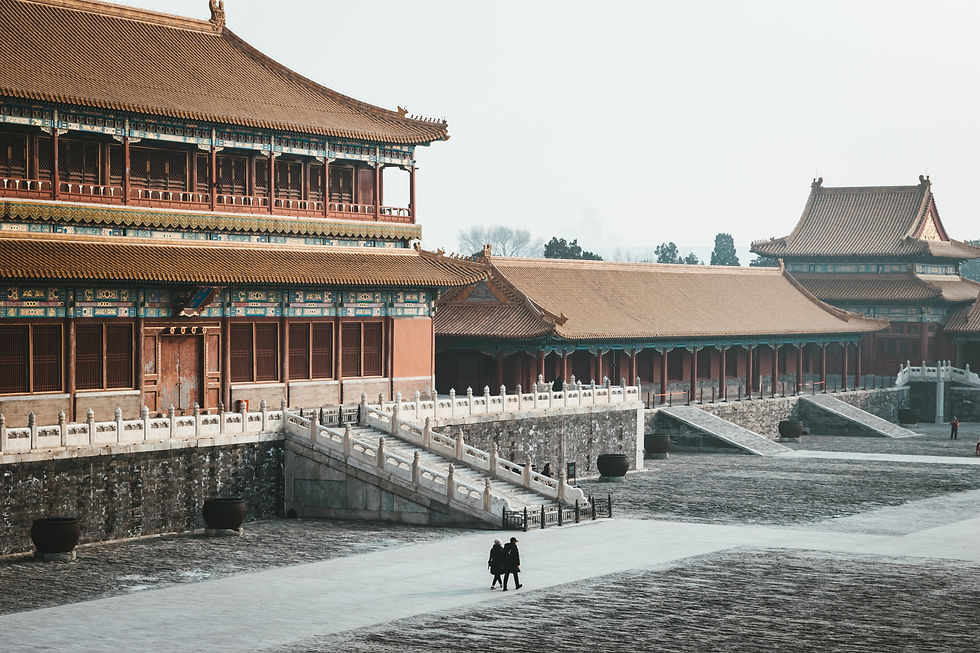Aristotle to Assets: Timeless Wisdom on Wealth and Well-being
- Tim Gratis
- Aug 24, 2023
- 3 min read

The annals of history are replete with philosophical insights, with figures like Aristotle shaping much of our foundational thought. While he and his contemporaries largely predated modern economic constructs, their wisdom remains astonishingly relevant to our contemporary discourse on wealth and well-being. Delving into the depth of such timeless teachings can offer a profound understanding of our modern pursuit of assets, wealth, and overall happiness.
Aristotle's Ethical Landscape
In his celebrated work "Nicomachean Ethics," Aristotle delves deeply into the nature of the 'good life.' He introduced the concept of "eudaimonia," often translated as "flourishing" or "well-being." To Aristotle, the ultimate goal of human life isn't merely pleasure or wealth but a life of virtue and meaningful activity. Thus, wealth is not the end but a means to achieve eudaimonia.
The Classical Pursuit of Wealth
In ancient Greece, wealth was viewed with a dual-lens. On the one hand, affluence facilitated the good life by allowing leisure, which provided time for intellectual and philosophical pursuits. On the other hand, an unchecked pursuit of wealth for its own sake was cautioned against, as it could lead to moral decay and a life devoid of purpose.
Contemporary Wealth: The Modern Dilemma
Today, the societal narrative primarily associates success with material accumulation. From lavish lifestyles flaunted on social media to the relentless capitalist drive, the race for assets often overshadows the quest for holistic well-being. This raises a pivotal question: How can Aristotle's wisdom guide our modern understanding of wealth?
Assets Beyond the Tangible
Drawing parallels with Aristotle's emphasis on a life of virtue, it's imperative to recognize that actual assets aren't just tangible.
Intellectual Assets: Knowledge, skills, and intellectual pursuits remain priceless. They not only elevate one's societal contribution but also enrich personal well-being.
Emotional Assets: Relationships, emotional intelligence, and empathy are cornerstones of holistic wealth, promoting inner peace and societal harmony.
Spiritual Assets: Aligning with a higher purpose or understanding, regardless of religious affiliation, can provide a profound sense of fulfillment and grounding.
Redefining Success: The Aristotelian Perspective
For Aristotle, true success lies in balancing material acquisition and moral virtue. This perspective encourages the following:
Purpose-driven Wealth: Rather than amassing wealth for its own sake, aim for wealth that serves a purpose - philanthropy, promoting art and culture, or furthering education.
The Golden Mean: Aristotle's concept of the 'Golden Mean' – finding the balance between excess and deficiency – remains crucial. In terms of wealth, this implies living neither extravagance nor abject frugality but finding a sustainable, purposeful middle ground.
Ethical Economics: Root economic pursuits in ethics. Whether businesses prioritize corporate social responsibility or individuals invest ethically, infusing moral philosophy into financial decisions can lead to a more equitable society.
Timeless Teachings in a Transient World
Despite the vast temporal gap between Aristotle's era and ours, some wisdom remains universally pertinent.
The Temporality of Material Wealth: Just as empires rose and fell in ancient times, stock markets soar and crash today. The temporary nature of material assets underscores the need to invest in intangible assets like knowledge, relationships, and purpose.
Wealth as a Facilitator, Not an End: Assets should facilitate personal growth, societal contribution, and overall well-being. This echoes Aristotle's sentiment that wealth is not the ultimate end but a means to achieve eudaimonia.
Contemporary Voices Echoing Timeless Wisdom
Modern thought leaders echo Aristotle's sentiments, from economists to spiritual guides. Renowned figures like Dalai Lama reiterate that happiness doesn't stem from material wealth alone. Meanwhile, economists like Robert J. Shiller emphasize the moral dimensions of markets and the broader implications of wealth.
The Path Forward: Integrating Wisdom with Wealth
Integrating ancient wisdom into our modern economic pursuits can pave the way for a more fulfilling life. This involves:
Mindful Consumption: Consistency of our consumption patterns, ensuring they align with our needs and more significant life goals.
Education and Enlightenment: Revisiting classic philosophical teachings as part of mainstream education can provide a more holistic understanding of wealth.
Societal Shift: As a collective, society can redefine success markers, placing well-being, ethical contributions, and holistic development at the forefront.
Conclusion: Wealth and Well-being in Harmony
The journey from Aristotle to assets isn't merely a temporal leap but a profound exploration of human values. While the tools and constructs of wealth have evolved, the foundational quest for well-being remains unchanged. By intertwining ancient wisdom with contemporary pursuits, we can hope for a future where wealth amplifies well-being, assets are accumulated and appreciated in their true essence, and prosperity harmoniously coexists with purpose. The path to such a future begins with understanding and imbibing the timeless teachings of figures like Aristotle, reminding us of the true essence of wealth and well-being.







コメント